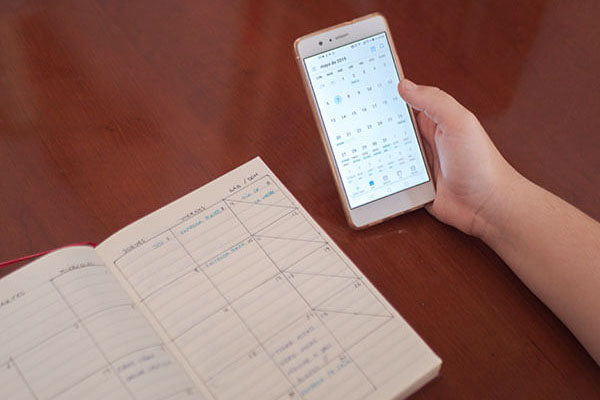
The pressures of high school can significantly impact adolescent mental health. With intensifying competition for college admissions and the challenges of balancing academics, social life, and extracurricular activities, many teenagers experience increased anxiety. This guide offers insights and practical strategies for parents to support their anxious teens.
Understanding Teen School Anxiety
School anxiety in teens can manifest in various ways, from test anxiety and social stress to general academic worries. Recognizing the signs early and implementing supportive strategies can make a significant difference in your teen's mental well-being and academic performance.
Active Listening: The Foundation of Support
One of the most crucial steps in helping your anxious teen is to practice active, non-judgmental listening. This approach builds trust and helps your teen feel understood and supported. Here are some key strategies:
- Create a safe space for open dialogue
- Use open-ended questions to encourage sharing. For example, instead of asking "Did you have a good day at school?" try "What was the most interesting part of your day at school?"
- Validate their feelings, even if the concerns seem trivial. For instance, if your teen is anxious about a group presentation, avoid dismissing their concerns with phrases like "It's no big deal." Instead, try saying, "I can see why that might feel stressful. Group projects can be challenging. Can you tell me more about what's worrying you?"
- Avoid immediate problem-solving; focus on understanding first
Promoting Healthy Habits for Anxiety Management
Encouraging healthy lifestyle habits can significantly reduce school-related anxiety. Focus on these key areas:
Sleep Hygiene
Adequate sleep is crucial for managing anxiety and improving cognitive function. Establish a consistent sleep routine and limit screen time before bed.
Balanced Nutrition
A well-balanced diet can help stabilize mood and energy levels. Encourage regular meals rich in proteins, complex carbohydrates, and omega-3 fatty acids. For more information on how diet can affect anxiety, check out this article.
Regular Physical Activity
Exercise is a powerful anxiety reducer. Help your teen find enjoyable physical activities, whether it's team sports, yoga, or daily walks. Don't be afraid to encourage your teen to try different activities until they find something they truly enjoy. The goal is to discover a form of exercise they look forward to and will continue doing regularly. This might involve exploring various options, from dance classes and martial arts to hiking or cycling. Remember, the best exercise for anxiety reduction is the one your teen will stick with consistently.
Effective Time Management Techniques
Poor time management often exacerbates school anxiety. Help your teen develop strong organizational skills:
- Use a planner or digital app to track assignments and deadlines
- Break large projects into smaller, manageable tasks
- Create a structured study environment free from distractions
- Teach prioritization skills to balance academics and personal time
Mindfulness and Relaxation Strategies
Incorporating mindfulness and relaxation techniques into daily routines can significantly reduce anxiety. Consider these approaches:
- Guided meditation or breathing exercises
- Progressive muscle relaxation
- Journaling for emotional expression
- Mindfulness apps designed for teens
Cultivating a Supportive Home Environment
Creating a calm and supportive home atmosphere is crucial for anxious teens. Consider these strategies:
- Establish consistent family routines
- Encourage open communication about school and personal concerns
- Model healthy stress management techniques
- Celebrate efforts and improvements, not just achievements
Collaborating with School Staff
Engaging with teachers and school counselors can provide valuable support for your anxious teen:
- Schedule regular check-ins with teachers
- Explore available school resources for anxiety management
- Discuss potential accommodations for anxiety-inducing situations
- Keep open lines of communication between home and school
Recognizing When Professional Help is Needed
While many anxiety management strategies can be implemented at home, it's important to recognize when professional help is necessary. Consider seeking therapy if:
- Anxiety significantly interferes with daily functioning
- Your teen expresses persistent feelings of hopelessness
- There are noticeable changes in sleep, appetite, or social behavior
- Home-based strategies aren't providing sufficient relief
Empowering Your Teen to Thrive
Managing school anxiety is a journey that requires patience, understanding, and consistent support. By implementing these strategies and maintaining open communication, you can help your teen develop resilience and effective coping mechanisms. Remember, every teen is unique, and it may take time to find the right combination of techniques that work best for your child.
If you're concerned about your teen's anxiety levels or would like professional guidance, don't hesitate to reach out to a qualified mental health professional. With the right support and strategies, your teen can navigate the challenges of school anxiety and build a foundation for long-term mental well-being and academic success.
In-Person and Virtual Therapy Options Available
If you are seeking assistance with managing your child's mental health during summer, I'm here to help. You can fill out the contact form below or call me at 818-403-5439 to schedule an appointment. I offer both in-person therapy at my office in Agoura Hills, CA, and virtual therapy sessions for individuals and families located anywhere within the state of California.
As a licensed Marriage and Family Therapist, I specialize in helping families navigate the challenges of maintaining routines and supporting children's mental health. I provide in-person therapy to patients in Agoura Hills and the surrounding areas, including Westlake Village, Oak Park, Calabasas, Thousand Oaks, Woodland Hills, and Simi Valley.